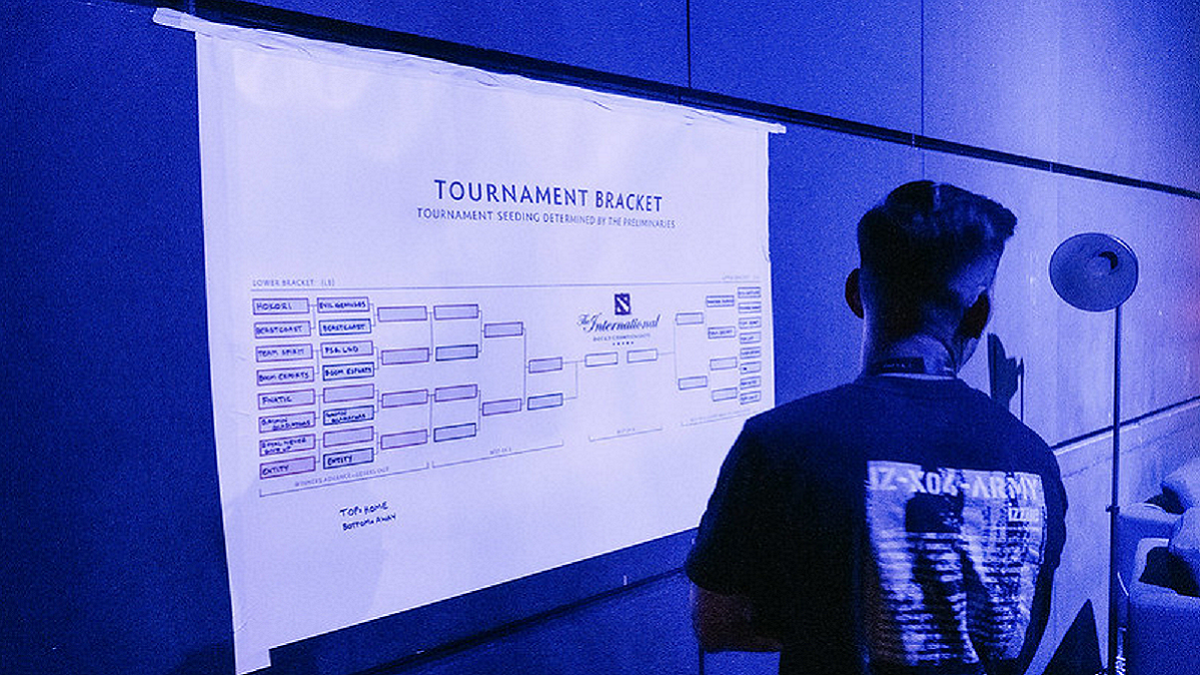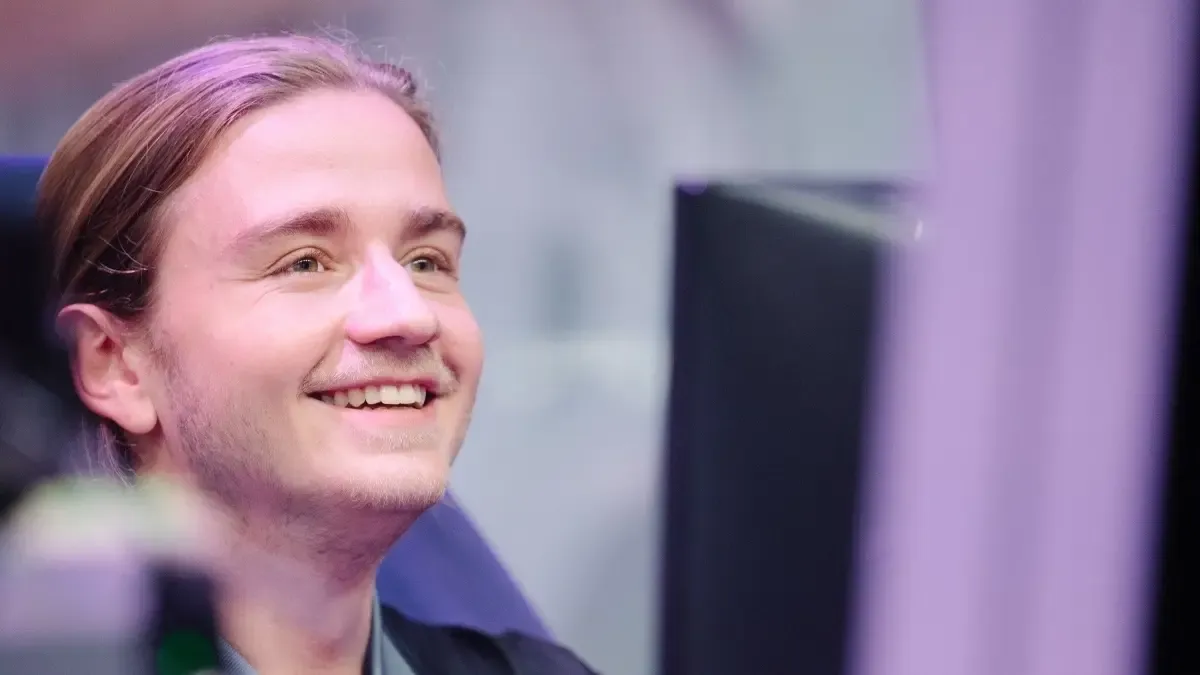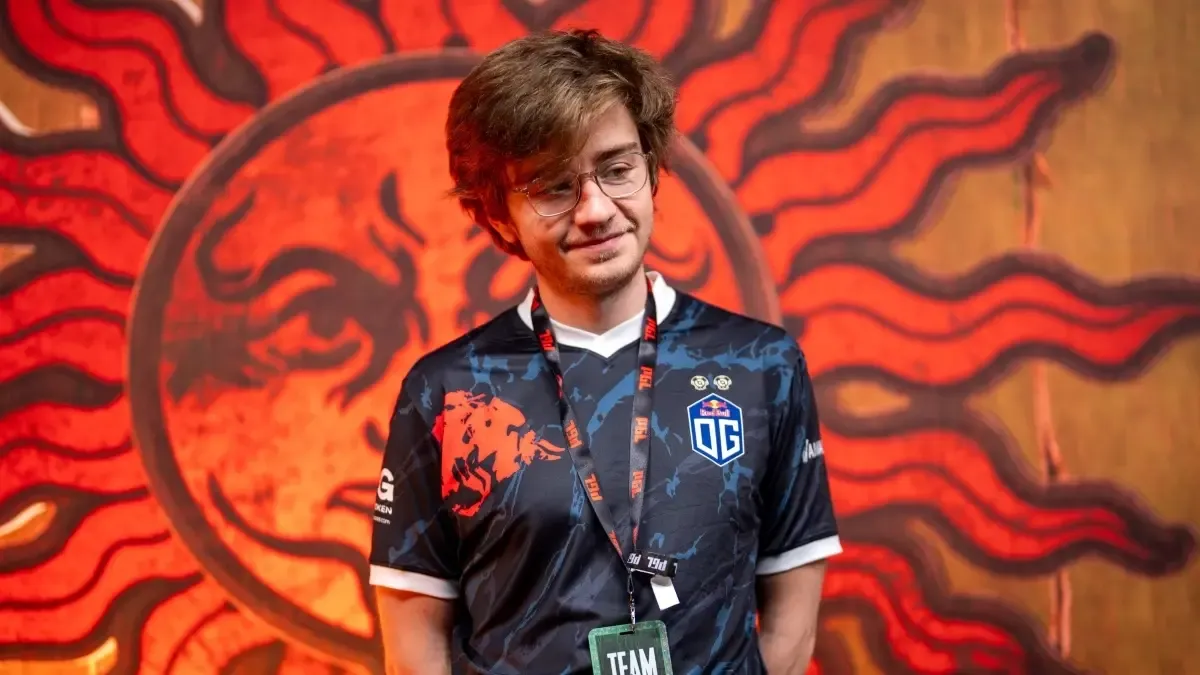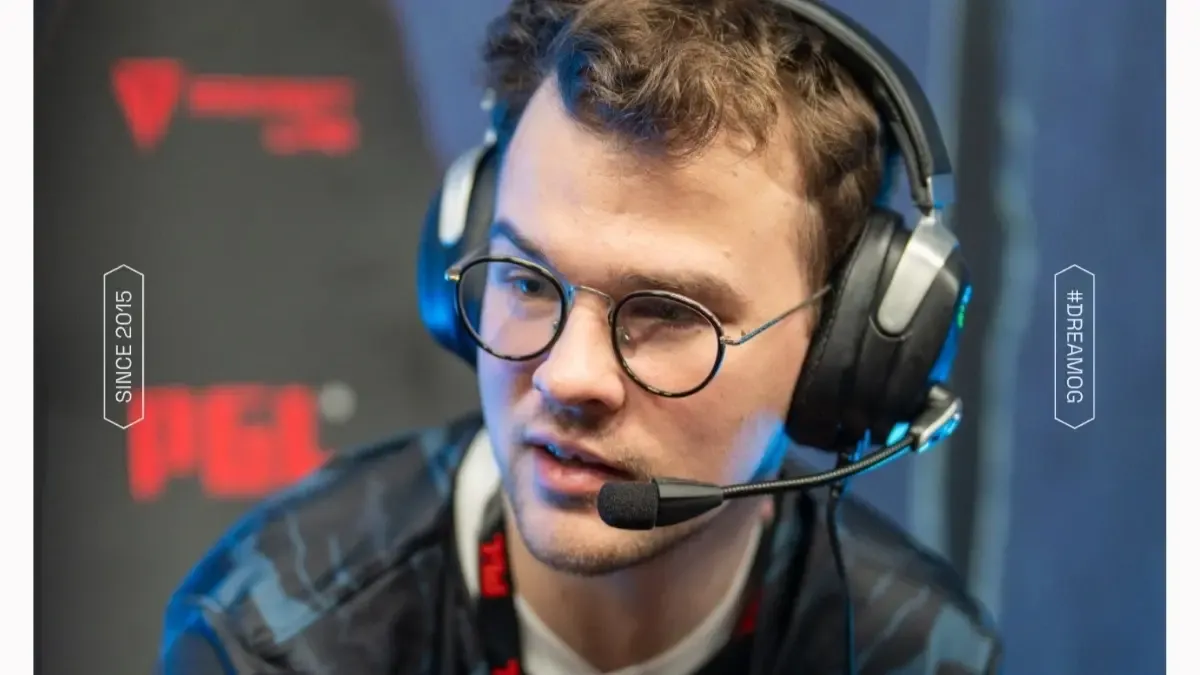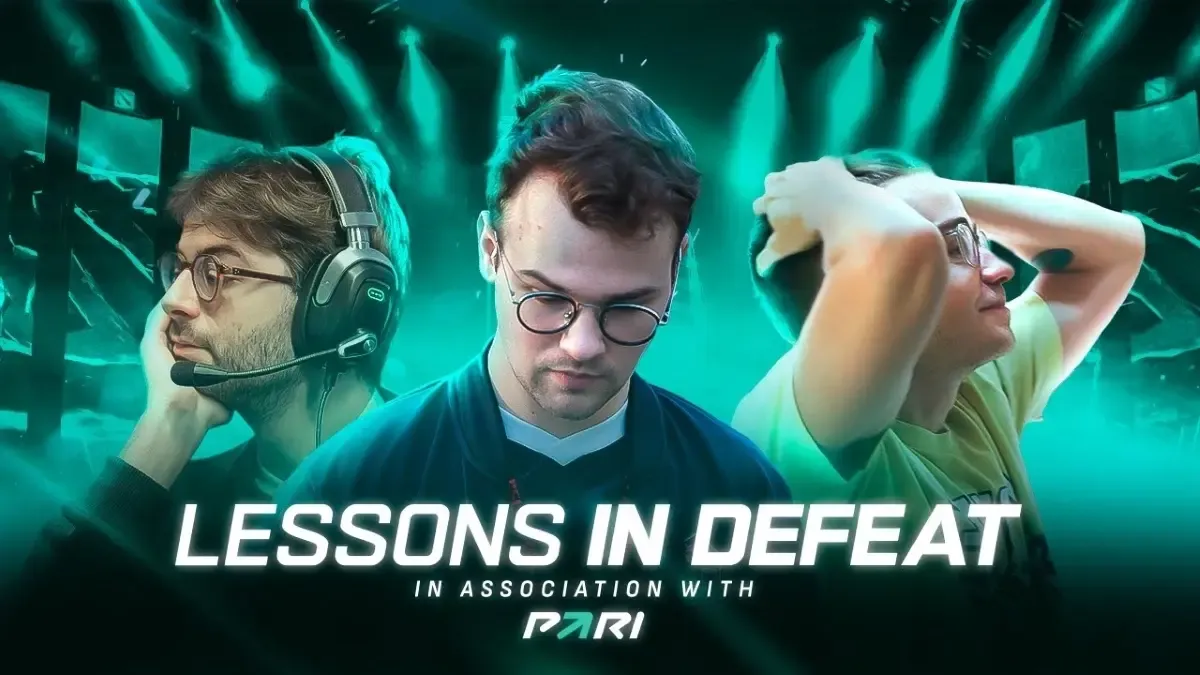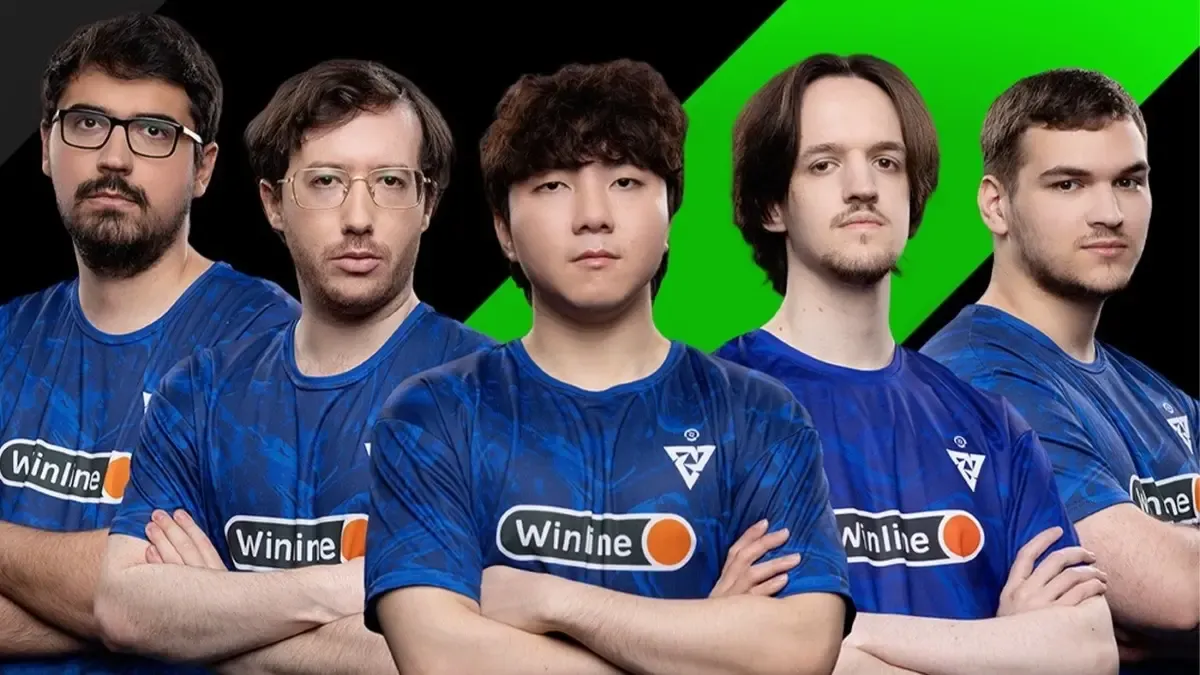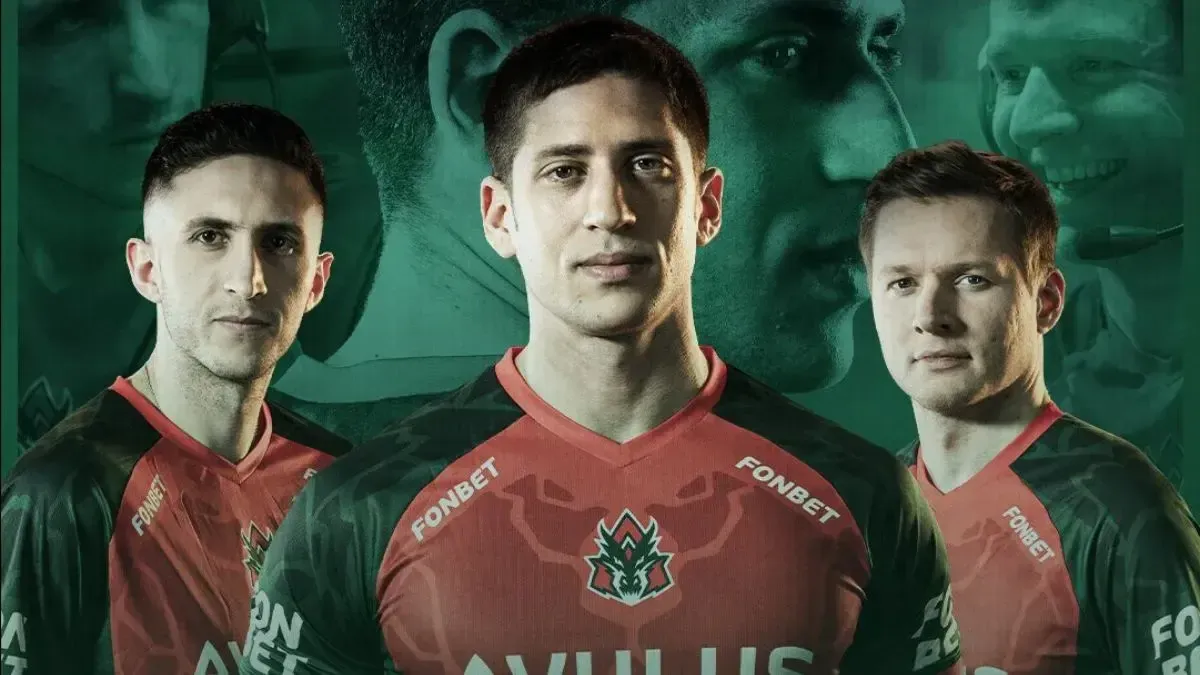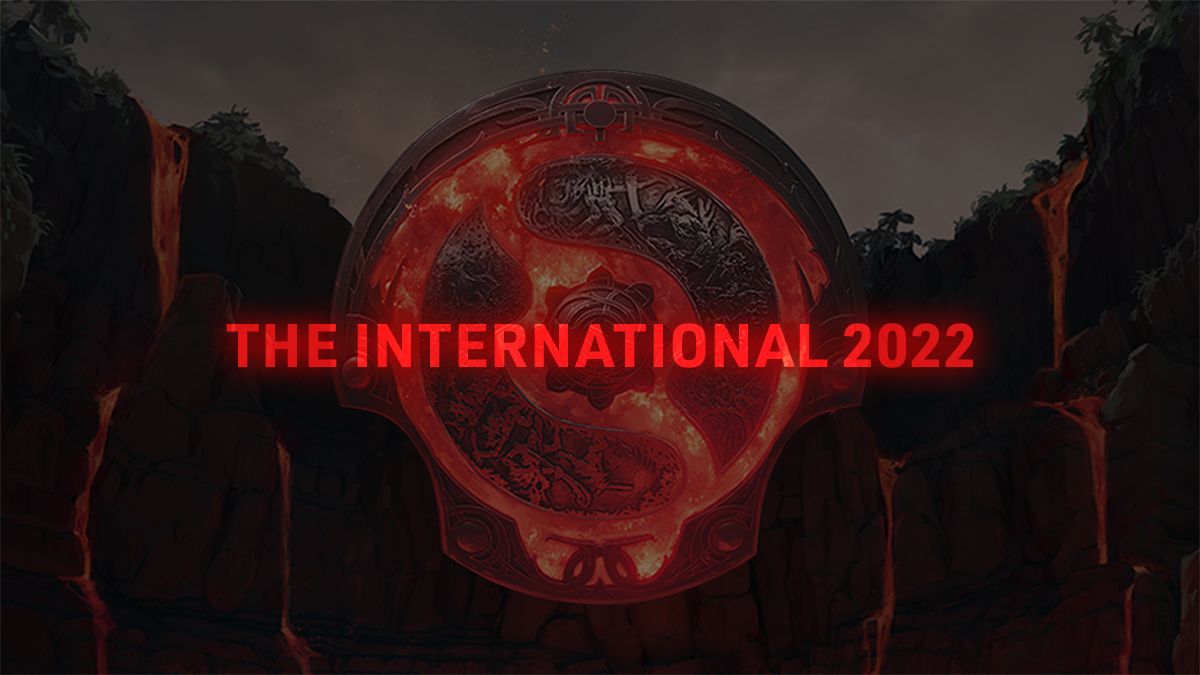Low production value isn't new when it comes to Dota 2 LAN events, sadly, it's something fans almost expect. But what about when it compromises competitive integrity?
Often when we talk about production value at an event, it is centered around the experience for the viewer at home or in the live audience.
As disappointing and frustrating as it is for everyone, at the end of the day all we really want is some good Dota 2 games, fierce competition, and fairness.
But can the low production value or problems compromise the competitive integrity of the event? And if so, what happens then?
The International 2022 Production
Even before The International 2022 got started, PGL and Valve's decisions were thrust into the spotlight and there were concerns and controversy about the production.
The English talent was rumored and then confirmed to be working remotely from Oslo, Norway and the entire Russian broadcast had been moved from Norway to Kazakhstan in order to facilitate the travel for the rather large number of Russian talent invited to The International 2022, sparking outrage from the community.
But once the event began, the attention shifted right back to the quality of production being broadcasted and presented to viewers online and at the venue.
If those were the only problems. If the audience (who paid $400 to be one of only 300 spectators at the event) were the only ones affected.
Production & Competitive Integrity
Things were even worse for the players.
As the teams took their places on the stage, there were no soundproof booths.
We've questioned before the competitive integrity of events.
In 2021 multiple teams were required to compete with last-minute stand-in players at ONE Esports Singapore Major, leading us to wonder about competitive integrity.
But this took things to a whole new level.
The at-home-field advantage does exist. From the crowd fueling the energy to even caster's calling out team's movements, there is a definite advantage for teams playing in their home country as candidly pointed out by Alliance COO and ex-team manager Kelly Ong in a periscope broadcast from Manila in 2016.
Without soundproof booths or noise-canceling headsets, a new problem presented itself in the way of competitive integrity.
It was quickly revealed that the players could everything the casters were saying and some teams even were able to adjust their calls, rotations, and playing based on it.
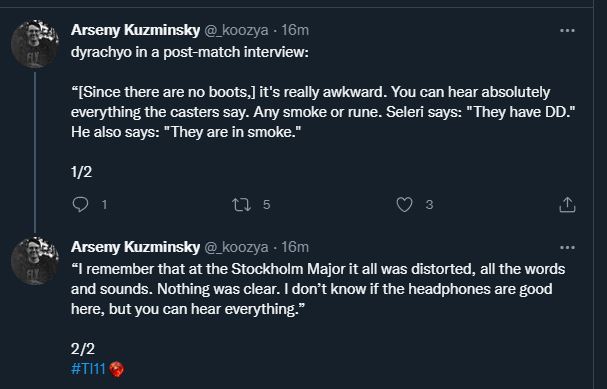
In an interview with the Russian community-caster Nix, Anton "dyrachyo" Shkredov from Gaimin Gladiators revealed that players could hear everything that casters say, and the audience yells.
Gaimin Gladiators had just knocked Fnatic out of contention in the brutal best-of-one lower bracket elimination series.
The Aftermath
After this was brought out into the open and sparked outrage from the community, PGL made some adjustments including providing earbuds (apparently not so hygienic and limited sets being shared) to players and lowering the volume of the casters (to a barely audible volume even within the front rows).
But too much damage was already done.
Teams had already competed and their places in the brackets were determined. Four teams had already been eliminated.
For many, this is not an issue of fair play where teams seek out ways to gain a competitive edge over their opponents, but more along the lines of 'foul play', of not upholding a moral code that gave them an unfair advantage. Some teams couldn't hear the casters clearly, and others are not as, if at all, proficient in English. PSG.LGD reported that they could hear but didn't understand what was being said.
This was an issue talked about in the Chinese community. LGD reported that they could hear but didn't understand what was being said and Team Aster had already reported the issue to PGL without a response. They were going to learn keywords such as "Roshan" and "Smoke".
Perhaps this was even most glaring in the case of Royal Never Give Up's devastating loss to Entity where it was just Yap "xNova" Jian Wei on the stage surrounded by four teddy bears trying to keep his spirits up, while his four teammates had to play from the quarantine hotel rooms.
Some organizations won't be taking this lightly.
There will always be a giant asterisk next to this event in the history books, indicating the issue and casting a shadow and questions on the outcome.
In the biggest Dota 2 event of the year, the competitive integrity has been immensely compromised.
The International 2022
The International in Singapore will be the largest Dota tournament in history featuring 30 world-class teams battling out on the road to the Aegis of Champions across 4 consecutive weekends.
TI11 is unfolding in Singapore from October 8th (starting with the offline/LAN last chance qualifiers) to October 30th with the grand finals.
- Read more about the schedule and format changes for The International 2022.
On 22nd January 2022, it was announced that the second and third-place teams from each region's qualifiers would compete in the Last Chance Qualifier LAN event prior to The International to decide the final two qualification spots - thus expanding The International 2022 from 18 to 20 teams.

